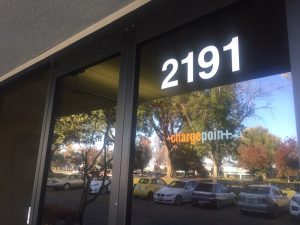Kamala Harris played almost no role in the key decision on crime made by California voters in the 2014 election, when they passed Proposition 47 and reduced penalties for many types of crime.
Related Articles
Elias: Most of fight over California’s Prop. 36 should’ve been avoided
Elias: Six California Congressional races more crucial than usual this year
Elias: $400M ‘loan’ to PG&E to keep nuclear plant going a raw deal
As state attorney general at the time, Harris said professional ethics forced her into a neutral role. It was a convenient stance that let her escape unscathed to the U.S. Senate two years later, then become vice president in 2020 and now emerge as the Democratic presidential nominee.
So don’t expect her to say much about this fall’s Proposition 36, a measure backed by prosecutors who have long claimed Prop. 47 made life easier for criminals. Of course, don’t expect Harris to spend much time in California this fall either, as her home state is regarded by all sides as immutably blue and all but absolutely certain to provide Harris with 54 electoral votes.
The main thrust of Prop. 47 was to reduce many property and drug crimes to misdemeanors from their previous status as felonies. That, say many, opened the door to rampant shoplifting and a spate of what appeared to be highly organized and coordinated “snatch-and-grab” burglaries.
Few of the criminals involved have paid much of a price for those crimes, almost all of which have been considered misdemeanors under Prop. 47, which set a $950 floor for the value of any theft to be treated as a felony. This has usually let even thieves who are caught avoid jail time.
Ten years ago, Prop. 47 split the state’s dominant Democrats, with Harris doing little on it, while Gov. Gavin Newsom, then lieutenant governor, was a backer. Then-Gov. Jerry Brown opposed it even though the measure boosted his effort to cut down the prison population.
Then-U.S. Sen. Dianne Feinstein was also opposed, warning that “wholesale reclassification of many dangerous felonies as misdemeanors would put the people of California at continuous risk … .” Meanwhile, current Los Angeles District Attorney George Gascon, now in a tough reelection fight, signed the ballot argument favoring Prop. 47. He was then San Francisco’s district attorney.
Retailers are one business segment that definitely feels at risk because of Prop. 47 and its standard for felonies. Outfits like Target, Walgreen’s and Rite-Aid have closed stores because of rampant shoplifting. Big Box stores like Walmart, Target and Home Depot are among the chief financial backers of Prop. 36, which would roll back much of Prop. 47.
The new measure would make any third conviction for theft of any size a felony punishable by three years in prison. It would also make possession of fentanyl a felony and make any third drug possession conviction a “treatment-mandated felony,” depriving those convicted of any right to refuse treatment.
Newsom has been anything but neutral on Prop. 36, pushing through a 10-bill legislative package that aims to upstage and replace Prop. 36, so he won’t endorse it. His successor several times removed as mayor of San Francisco, London Breed, has been a prime backer of the proposition.
Meanwhile, Harris took no position on the original Prop. 47, with her campaign manager at the time saying attorneys general are like umpires, “the objective observer calling balls and strikes.” He said that role was thrust on Harris because the attorney general by law must write fair and objective ballot titles and summaries for all initiatives.
Previous attorneys general, though, like Republican Dan Lungren in the 1990s and Democrat Tom Lynch in the 1970s, took strong positions on ballot measures. Harris will not be obliged to do much with Prop. 36, and may be wise to avoid it altogether as a party-splitting hazard, even though that would leave her open to criticism for ducking the issue.
Doing that never hurt her before, though, so changing her tactics now seems to offer no large and obvious advantage. This would make the California resident not even mentioning the issue this fall no surprise, despite sharing the ballot with it.
Email Thomas Elias at tdelias@aol.com, and read more of his columns online at californiafocus.net.












